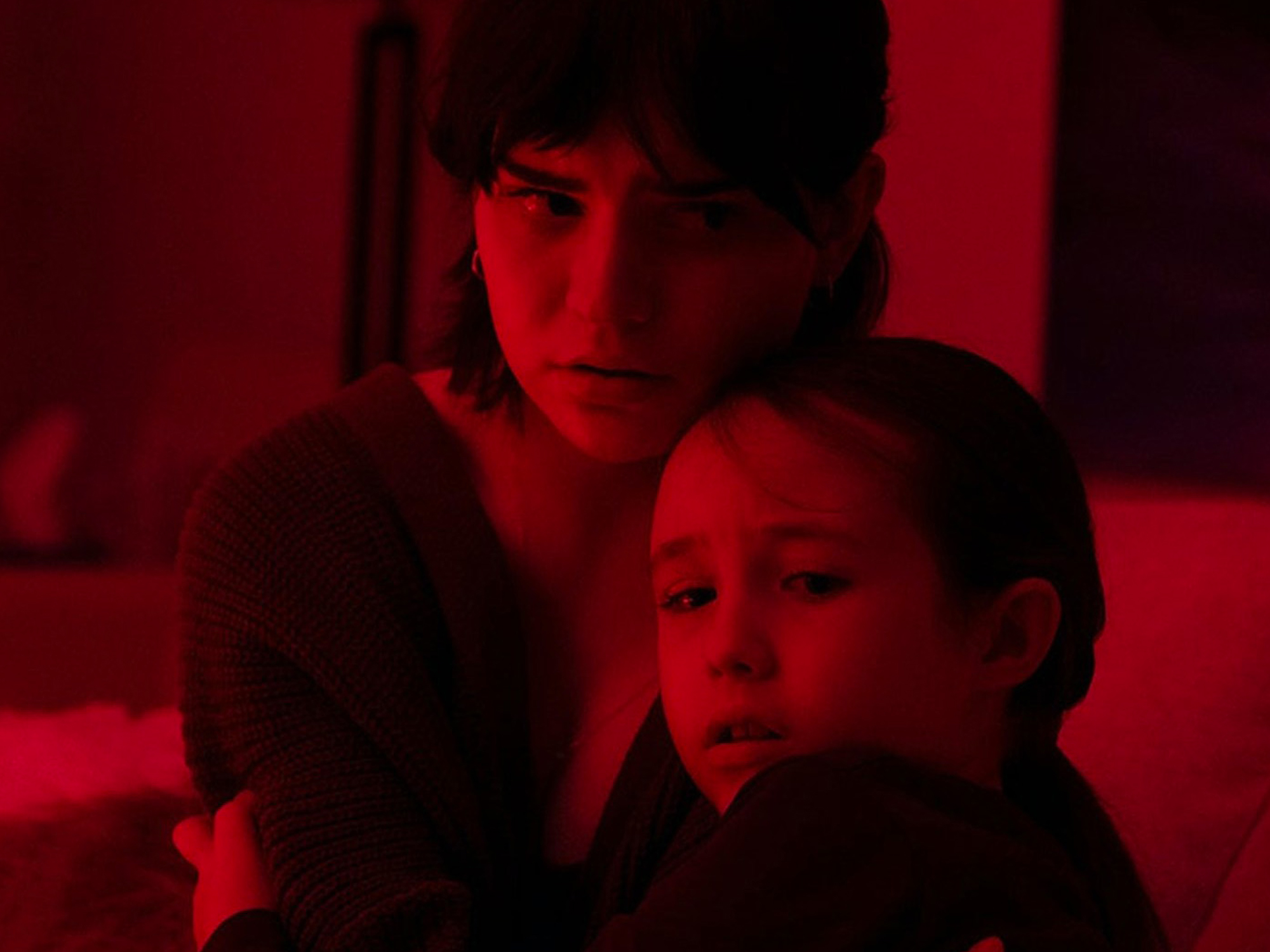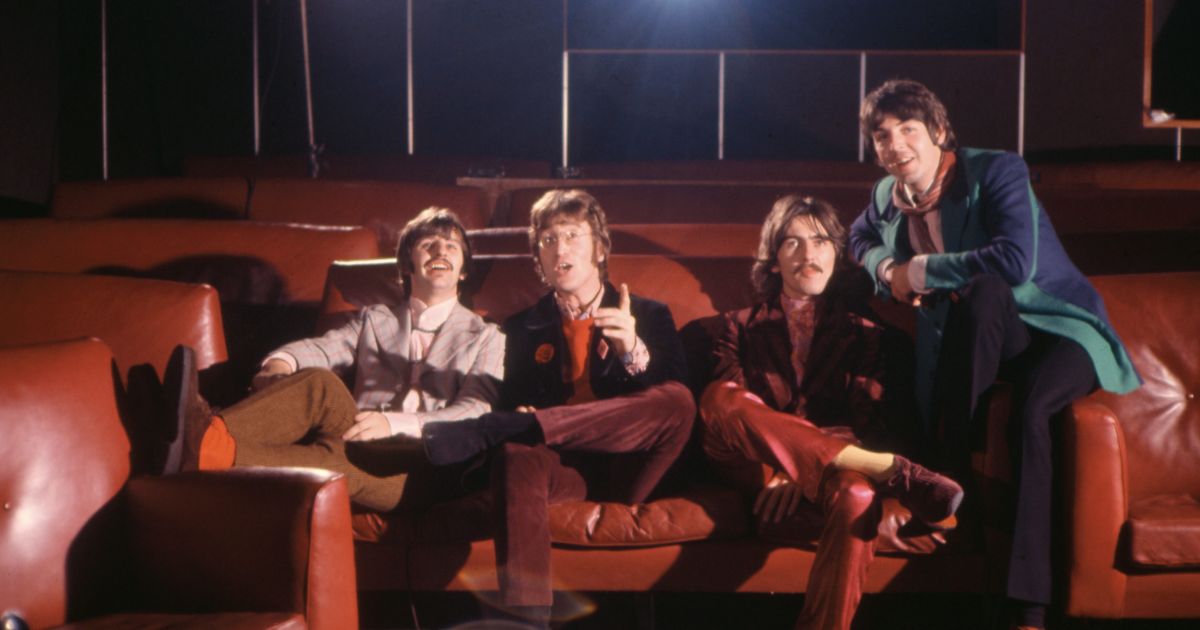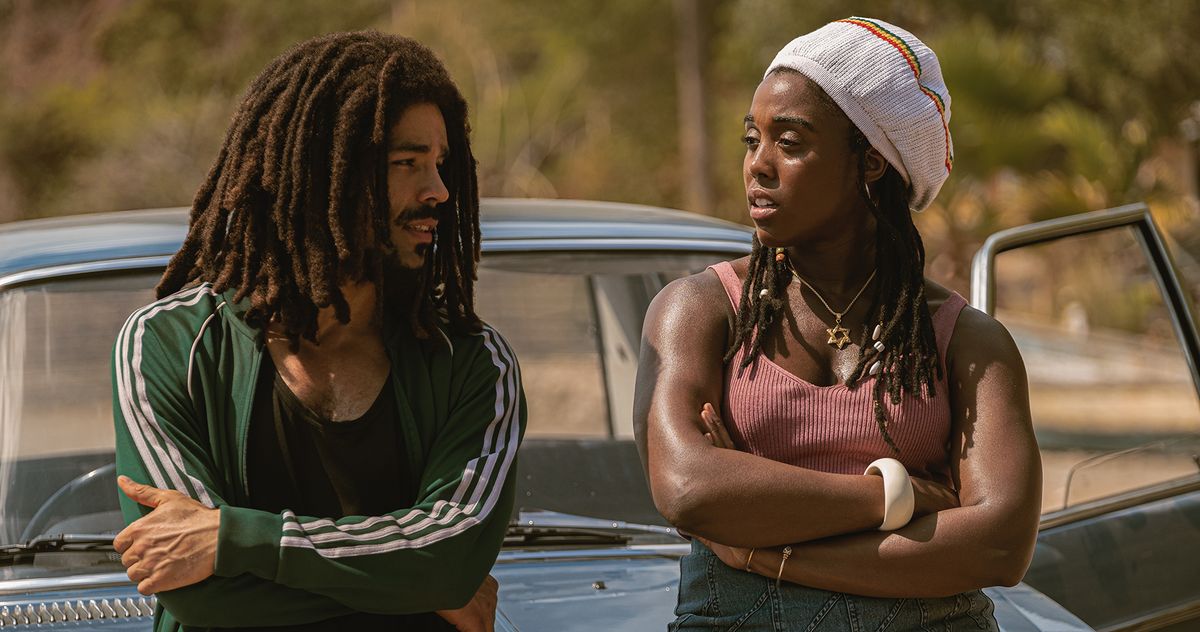
The Boogeyman
Stephen King’s 1975 short story The Boogeyman blurs the psychological and the supernatural. Unfolding entirely within the confines of a psychiatrist’s office, it purports to be the story that distraught patient Lester Billings tells about his three children’s deaths – and while Lester insists that they were all killed at the hands, or more precisely claws, of a creature that would emerge at night from the closet, from the consulting couch this distraught narrator also reveals his own racism, sexism, cruel attitudes towards childrearing and propensity to violence, enabling his story to be read in two different ways – even if, in the end, the monster will come out once more for Lester himself.
Scott Beck, Bryan Woods and Mark Heyman’s very free adaptation of King’s story lets us know from the start that there is a supernatural monster, revealed through the sound of its strange, human-aping voice (courtesy of Daniel Hagen) and occasional glimpses of its shadow and claws, as cinematographer Eli Born’s camera pans in a circle around a bedroom, capturing only in impressionistic passing the creature’s fatal attack on an audibly terrified toddler.
From this harrowing sequence, there is a cut to the Harper family – teenage daughter Sadie (Sophie Thatcher) and the much younger Sawyer (Vivien Lyra Blair), both reeling from the recent death of their mother in a car accident, and their father Will (Chris Messina), who though a psychologist himself, has been unable to open up about his own feelings of loss.
This domicile, already filled with dark, emotionally fraught thoughts, will soon be visited by the haunted, similarly grieving Lester (David Dastmalchian), whose child was killed in the opening scene – and he will bring with him not just his own unnerving narrative, but something more tangible that takes up residence in the damaged home, looking to feed on a new family’s dysfunction and pain.
Photophobic like the monsters from David Twohy’s Pitch Black, Robert Harmo’s They, Troy Nixey’s Don’t Be Afraid of the Dark and Brad Anderson’s Vanishing on 7th Street, this creature quickly inhabits the dark closets, the shadows under the bed, the ill-lit basement – all spaces associated equally with a child’s primal fears and with family repressions. Which is to say that while The Boogeyman is certainly a creature feature (and a ghost story) with all the tropes and trappings of horror, it is also, unquestionably, a psychodrama, tracking this beleaguered family’s desperate quest to confront their demons, both personal and shared, and to reemerge into the light.
Here director Rob Savage abandons the trademark screen-life experimentation and polarising political tensions of his earlier features Host and Dashcam, instead making his first foray into the ‘domestic’ market of mainstream studio horror. Savage taps right into all this household’s uncanny interiors, exploiting every gloomy nook and cranny to suggest, and increasingly to show, a monstrous presence that both preys on and incarnates the destructive negativity plaguing the Harpers. For all its conventionality, The Boogeyman is deftly done, its child-focused stakes are never less than alarming, and its ending, ambiguous and closeted, rings true.
Published 30 May 2023
Related News & Content
-

Use wp.media templates to create totally custom modal
Use wp.media templates to create totally custom modal,Following up on this answer I'm trying to determine how to create a modal with completely unique menu items/content than the media modal. If you add a new state you can add a new menu tab and hav... Tags: media modal stackexchange.com WordPress Development Stack Exchange -

Get post by tag
Get post by tag,I want to get several post by tag. So I try to use get_posts() function: <?php $args = array( 'numberposts' => '3', 'post_status' => 'publish', 'tag' => 'travel' ); $ Tags: functions posts query posts stackexchange.com WordPress Development Stack Exchange -

Elementor + ACF: How to insert dynamic JSON-LD formatted code into ACF field without sanitizing the script tag?
Elementor + ACF: How to insert dynamic JSON-LD formatted code into ACF field without sanitizing the script tag?,On a normal website, I am able to add JSON-LD structured data, such as below, into a Elementor HTML widget, in a proper way. However, as soon as I insert JSON-LD format into an ACF field (Textarea)... Tags: advanced custom fields php stackexchange.com WordPress Development Stack Exchange -

Gutenberg InnerBlocks noallowedblocks on parent but allowedblock on Child
Gutenberg InnerBlocks noallowedblocks on parent but allowedblock on Child,This is a continuation of the following post: Custom Gutenberg block with nested InnerBlocks renderAppender not displaying add button I solved one problem but created a different problem. I'm recr... Tags: block editor plugin development stackexchange.com WordPress Development Stack Exchange -

Delay Issue: Using Wget with JSON Endpoint – Need Help Understanding Headers
Delay Issue: Using Wget with JSON Endpoint – Need Help Understanding Headers,On a WooCommerce website, I have a REST endpoint created with register_rest_route that returns a JSON response. To perform a routine with a certain frequency and urgency, I have added this instruct... Tags: rest api stackexchange.com WordPress Development Stack Exchange -

How do I change top header background color
How do I change top header background color,Please refer to website: https://virginiafrank.com I cannot get the top header background color (or phone numbers) to change color. I would prefer the background gold and text black. I can't make t... Tags: headers stackexchange.com WordPress Development Stack Exchange -

How to display the_tags() as plain text
How to display the_tags() as plain text,the_tags by default is displaying as URL. I need to display it as plain text to insert inside HTML attribute. <?php $tag = the_tags(''); ?> <div class="image-portfolio" data-section... Tags: stackexchange.com tags WordPress Development Stack Exchange -

Give to site admin the option to "skip confirmation email" when adding new user
Give to site admin the option to "skip confirmation email" when adding new user,in wordpress multisite when we give to site admin the option to add new users, site admin dont have the "checkbox" to add the new user without sending the user email with link activation (see the Tags: email verification multisite stackexchange.com users WordPress Development Stack Exchange -
Facing Hamas and Tehran, Israel is left with only vengeful madness | Opinion
Facing Hamas and Tehran, Israel is left with only vengeful madness | Opinion,Despite the Terrible Disaster on October 7, and the Failures It Exposed, Israel Is Still Convinced That the Image of the Mad Man Will Ensure Its Security -

A24 Reveals I Saw the TV Glow Trailer, Announces Star-Studded Soundtrack
A24 Reveals I Saw the TV Glow Trailer, Announces Star-Studded Soundtrack,A24 has shared the trailer for the upcoming horror film I Saw the TV Glow and announced the soundtrack with Phoebe Bridgers, Alex G, and Caroline Polachek,. Tags: consequence.net Keycat Keytags -

Tom Hanks to Narrate Masters of the Air Companion Doc, The Bloody Hundredth
Tom Hanks to Narrate Masters of the Air Companion Doc, The Bloody Hundredth,Apple TV+ has announced The Bloody Hundredth, a companion documentary to Masters of the Air narrated by Tom Hanks. It premieres on March 15th. Tags: consequence.net Keycat Keytags -

Benson Boone Eyes Second Week at No. 1 In U.K. With ‘BeautifulThings’
Benson Boone Eyes Second Week at No. 1 In U.K. With ‘BeautifulThings’,Olivia Rodrigo is on track for the week's highest debut with "Obsessed." Tags: billboard.com Keycat Keytags -

West Virginia Gov. Justice vetoes bill that would have loosened school vaccine policies
West Virginia Gov. Justice vetoes bill that would have loosened school vaccine policies,West Virginia Republican Gov. Jim Justice broke with the GOP-majority Legislature to veto a bill that would have loosened one of the country’s strictest school vaccination policies Tags: 108569448 abcnews.go.com Article Children General news Health Immunizations Keycat Keytags Medication Politics U.S. News -

Blondshell and Bully Team Up For New Single “Docket”
Blondshell and Bully Team Up For New Single “Docket”,Blondshell has teamed up with Alicia Bognanno of Bully for the newly released single "Docket." Listen to the track here. Tags: Keycat Keytags pastemagazine.com -

No, You Didn’t Hallucinate a New Normani Song
No, You Didn’t Hallucinate a New Normani Song,No, you didn’t hallucinate a new Normani song. She really dropped “1:59,” featuring Gunna, after a two-year drought. Tags: Keycat Keytags vulture.com -

Here’s to Our Favorite Tortured Poets
Here’s to Our Favorite Tortured Poets,Taylor Swift and her various modern idiots join a long line of pop-culture poets sanctimoniously performing soliloquies, from real-life figures (‘Shakespeare in Love’) to the fictional but equally tortured (‘Dead Poets Society’). Tags: Keycat Keytags vulture.com -

I’ll Show You The Inside Of 12 Disney Homes, All You Have To Do Is Tell Me Which Movie They’re From
I'll Show You The Inside Of 12 Disney Homes, All You Have To Do Is Tell Me Which Movie They're From,I believe in you. Tags: buzzfeed.com evergreen Keycat Keytags Movies Trivia trivia quiz -

Toyota’s Super Bowl Ad Relies on Car Challenges, Not Famous Faces
Toyota's Super Bowl Ad Relies on Car Challenges, Not Famous Faces,Toyota decided just weeks ago to run a Super Bowl commercial, and is betting on a spot that has no celebrities or special effects. Tags: Keycat Keytags Super Bowl Commercials Toyota variety.com -

Release the Beatles Jerk-off Cut
Release the Beatles Jerk-off Cut,Sam Mendes is making four Beatles movies, one for each Beatle. But if none of the movies include the legendary story of John and Paul’s days of group masturbation, Mendes will have blown his wad for naught. Tags: Keycat Keytags vulture.com -

There’s a Great Movie to Be Made About Bob Marley’s Story. One Love Is Not It.
There’s a Great Movie to Be Made About Bob Marley’s Story. One Love Is Not It.,Walking away from ‘Bob Marley: One Love,’ you may feel you know less about the great musician than you did going in. Tags: Keycat Keytags vulture.com -

Carol Kirkwood stuns in figure-hugging dress amid BBC Breakfast technical chaos
Carol Kirkwood stuns in figure-hugging dress amid BBC Breakfast technical chaos,CAROL Kirkwood stunned in a figure-hugging dress amid a technical blunder. BBC Breakfast was flung into chaos this morning after a string of sound issues. However Carol, 61, was all smiles as she p… Tags: BBC BBC Breakfast BBC ONE Carol Kirkwood mirror.co.uk The Scottish Sun TV News TV UK daytime TV -

Families ‘to sue prison’ where loud inmates ‘terrorise kids’ with screaming
Families 'to sue prison' where loud inmates 'terrorise kids' with screaming,Residents living next door to a new prison who say their kids have to sleep wearing headphones and some leave during weekends due to the racket are threatening to sue the prison service Tags: mirror.co.uk Neighbours from hell prisons Scottish government The Mirror -

Doctor Strange’s Secret Wars Role May Be More Important Than You Thought – Looper
Doctor Strange's Secret Wars Role May Be More Important Than You Thought - Looper,According to entertainment leaker Alex Perez, Doctor Strange will find himself confronting his inner struggles as he headlines "Avengers: Secret Wars." Tags: Fiction Looper looper.com Marvel Cinematic Universe Science Star Wars The Universal Monsters franchise -
Fallout’s Walton Goggins on Discovering The Ghoul’s Past as Well as His Future
Fallout's Walton Goggins on Discovering The Ghoul's Past as Well as His Future,"There is a grit, a survival instinct, that is there for both," the acclaimed actor says of his role. -
I’m a Grown Up and I’m Moving On from Google Search
I'm a Grown Up and I'm Moving On from Google Search,Our columnist, a longtime Google searcher, argues that it's time to break up with the classic search engine. -

‘What Jennifer Did’: Netflix doc explores shocking Ont. murder-for-hire case
'What Jennifer Did': Netflix doc explores shocking Ont. murder-for-hire case,Most of Jennifer Pan's entire life was made up of lies. When her parents began to catch on, she decided to bring in hired hitmen. Tags: Crime Entertainment Global News globalnews.ca Jennifer Pan jennifer pan now Trending What jennifer did what jennifer did netflix -

What’s behind the lack of enthusiasm for this year’s music festivals?
What's behind the lack of enthusiasm for this year's music festivals?,The public sentiment about this year's crop of music festivals is an overwhelming "meh." There are good reasons for this. Tags: Coachella Entertainment glastonbury Global News globalnews.ca lollapalooza Music festivals News -

JERA backs AboitizPower’s plan to build offshore wind projects
JERA backs AboitizPower’s plan to build offshore wind projects,JERA Co. Inc., Japan’s largest power generation company, is willing to back Aboitiz Power Corp. should it decide to pursue offshore wind projects. Tags: BUSINESS jera co. inc. Philstar.com -

Insurance penetration declines to 1.75% of GDP
Insurance penetration declines to 1.75% of GDP,The insurance industry saw its net income slightly decline to almost P10 billion in the first quarter amid a drop in the life segment. Tags: BUSINESS gdp Philstar.com
Warning: file_get_contents(https://www.scienceradars.com/wp-output-content.php?pg=1&cat=&kw=&lvl=): Failed to open stream: HTTP request failed! HTTP/1.1 526 in /home/wwwroot/xuenou.com/wp-content/themes/chromenews/template-parts/content.php on line 169
Warning: file_get_contents(https://www.bayuexiang.com/wp-output-content.php?pg=1&cat=&kw=&lvl=): Failed to open stream: HTTP request failed! HTTP/1.1 526 in /home/wwwroot/xuenou.com/wp-content/themes/chromenews/template-parts/content.php on line 173
TrendRadars
The Most Interesting Articles, Mysteries and Discoveries








































![iFi's GO Bar Kensei Dongle DAC Supports K2HD Technology With Some Samurai Swagger [Updated] iFi's GO Bar Kensei Dongle DAC Supports K2HD Technology With Some Samurai Swagger [Updated]](https://i0.wp.com/cdn.ecoustics.com/db0/wblob/17BA35E873D594/33FF/45A11/QTXOLJR4xDKSNMMk2WlTgjaIlvSgcYpeU1xJzUwIoYs/ifi-go-bar-kensei.jpg?w=768&ssl=1)






















